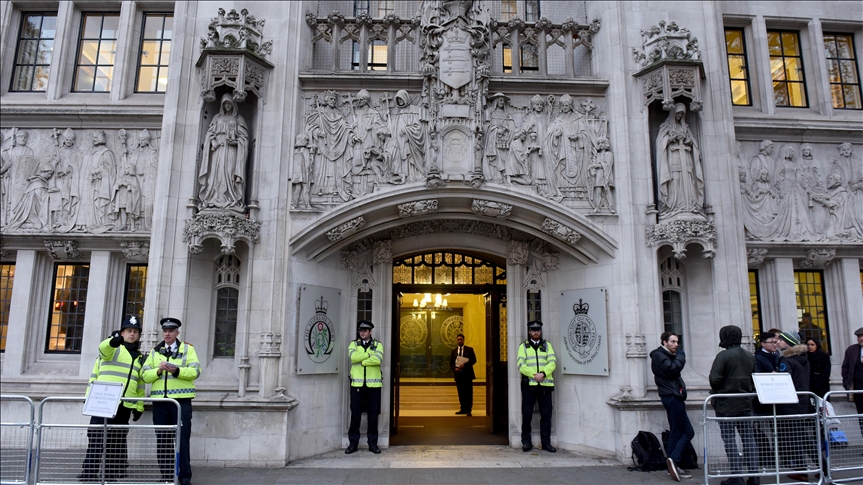Scotland has experienced a worrisome surge in fraud cases over the past year, as revealed by the KPMG UK bi-annual fraud barometer. The report highlighted a rise from 16 cases worth £5.9m in 2021 to a staggering 24 cases valued at £17.4m in 2022, indicating a 194% upswing.
A case that particularly captured media attention involved a young man from Ayrshire, aged 24, who deceitfully extracted £7m from a seasoned Bitcoin broker. Among the 24 cited cases, 13 were found to have a value bracket of £100,000 to £250,000. In five of them, commercial entities in Scotland were victims, incurring a cumulative loss of £1.3m. Four of the five were embezzlement cases, resulting in losses of over £604,000.
Investment Fraud in the UK: A Rising Threat
The KPMG Forensic Team has voiced concerns over the sharp spike in reported fraud cases in Scotland. A common thread among these cases is unscrupulous employees exploiting their positions to swindle funds from employers, clients, or peers. Sandra Aitkenhead, a Senior Manager at KPMG in Scotland, has fervently advocated for businesses to establish sufficient safeguards to deter serious fraud. She warns that the lack of appropriate protective measures could lead to continued victimisation of Scottish companies, tarnishing their reputation and straining their financial resources.
Investment fraud, too, has witnessed a notable ascent in value, with 19 cases being processed in UK courts in 2022, accruing to a total value of £181.8m. In comparison, 13 cases in 2021 added up to slightly over £12.5m. This is a staggering 1358% increase. An alarming revelation from the report was that the general public became the primary target in 11 of the reported cases in 2022, up from just three cases in 2021. Fraud committed against the public reached £10.3m in 2022, rising from £1m the previous year.
The Imperative of Due Diligence and Fraud Reporting
Roy Waligora, the Head of UK Investigations at KPMG, underscored the criticality of due diligence when considering investment opportunities. He advised investors and prospective investors to exercise caution with all investment opportunities, ensuring they undertake due diligence by consulting the FCA register and seeking professional advice before investing.
Companies must proactively defend themselves from fraud and report all encountered instances. Embezzlement is a pervasive issue, with employees often pilfering substantial amounts from their employers. It’s essential for businesses to establish accessible channels for reporting fraud and to act promptly in case of suspicious activity. This allows them to unearth facts and take action against the guilty parties.
For those who’ve suffered from fraud, being aware of your rights and taking necessary action to recover losses is crucial. Fraud must be reported to relevant authorities, such as the police, Action Fraud, and the Financial Conduct Authority (FCA). Securing legal advice may also be necessary to aid in the recovery of any money lost.
Escalating Fraud Cases in UK Courts: A Matter of Grave Concern
The surge in reported fraud cases in UK and Scottish courts is disconcerting for the public. The KPMG UK bi-annual fraud barometer underscores the urgency of implementing effective preventative measures against fraud, thus safeguarding businesses and individuals from financial losses. The report stated that the total value of alleged fraud cases over £100,000 escalated by over 150% from £444.7m in 2021 to £1.12bn in 2022. This points to an expanding trend in fraud, with larger sums of money being at risk.
Interestingly, while the number of fraud cases against financial institutions halved last year, the combined value of fraud committed against these institutions soared by 2204% to £609.2m compared to the preceding year. This shift implies that fraudsters are elevating their tactics, zeroing in on financial institutions in novel and more creative ways. Consequently, it’s paramount for citizens to stay abreast of these trends and adopt appropriate measures to guard against financial losses.
Mitigating the Impact of Fraud in the UK
The upward trend in fraud in Scottish courts is a pressing issue, given the high value of cases and the subsequent impact on businesses and individuals. Preventative measures, including due diligence when considering investment opportunities and reporting any encountered instances of fraud, are critical. Swift and decisive action can mitigate the impact of fraud in the UK, ensuring protection against financial losses.
The urgency to address the escalating fraud cases in Scottish courts is evident. Both businesses and individuals must adopt measures to safeguard themselves. This includes implementing robust controls to deter serious fraud, exercising due diligence, and reporting all instances of fraud. Taking swift action can mitigate the repercussions of fraud in the UK, ensuring financial security.



